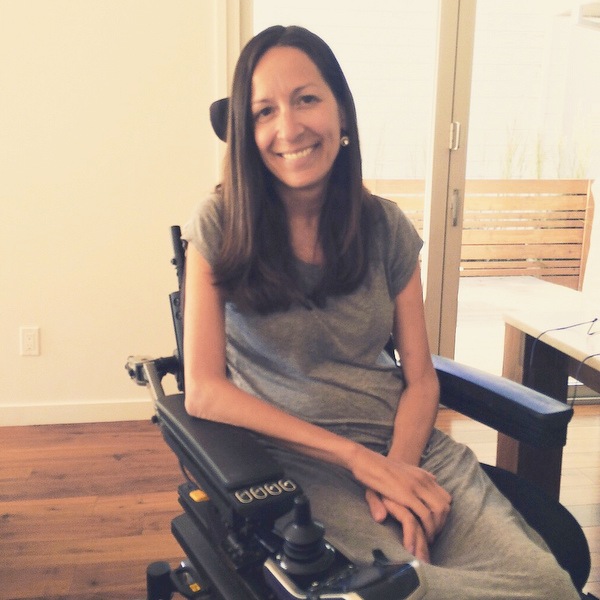I recently spoke to a few people with ALS who all said, “I’m dying,” at some point during our conversation. I understood. They were recently diagnosed, trying to make sense of a sudden, terrible loss of control over their lives, their futures. To say “I’m dying” can be a way to acknowledge what is happening, while still taking back some of the power. “Now I know what’s going to kill me,” one man said.
Or it could just be a way to begin to cope with what we’ve all been told is the inevitable conclusion of having this disease.
But I’ve found it doesn’t work for me. I once tried looking in the mirror and saying, “I’m dying,” out loud to my reflection. It just made me want to laugh. I don’t feel like I’m dying. Even though any one of us could look into a mirror and say those words, and they would technically be true, when I said them, they sounded false.
If I die of ALS in two years, six years or 10 years, does that mean I’m dying now? Do you, healthy people of the world, get up and announce you’re dying? Probably not, even though you might wake up tomorrow and get hit by a car, be bitten by a poisonous spider or maybe contract a deadly case of dysentery. (I sincerely hope that none of this happens. Also, that last one would probably only be an issue if you were playing the video game “The Oregon Trail,” but it’s still best to wash your hands regularly.)
These words we use, they matter. Is my disease terminal? What if it’s the dysentery that gets me? More optimistically, what if all of the current attention on ALS results in treatments that take me off death row? Will I then be told, “Well, you were terminally ill, but the good news is now you’re not. The bad news? You’re still gonna die.”
It’s certainly accurate to say that I’m disabled, a word that I have a rather fuzzy relationship with. Sometimes I don’t mind it, or its close cousin “handicapped.” Sometimes I don’t care enough to mind. Other times, the words are like waking up and discovering you speak another language fluently. They sound wrong, as though they are clearly meant for someone else.
I remember being asked in a college class how I identified myself. There were a host of words I could have used: woman, white, Italian, brunette, daughter, sister, student. And later: wife, mother, runner, writer. At the time, I thought woman first. Then for a while after college, I used my job as a primary identifier. Now I think it’s mom that comes first, if something must.
But ALS defines me, too. In fact, it differentiates me in a way that most of those other words don’t. I can’t run from it, which isn’t saying much, since I can’t actually run from anything. Stupid jokes aside, it’s a part of me.
I can’t run, can’t walk. I’m disabled. There’s no getting around that word, either. But none of these: ALS patient, disabled, dying are very far up on the list of words I use to describe myself. There’s more to me than my disease, just like there’s more to my disease than just the dying part.
When we talk about life, I think we are talking about something that (we hope) is long and lasting. When we talk about death, we are usually referring to a moment or series of moments leading to the actual end of life.
So if I don’t say that I’m dying, it’s not because I’m in denial. It’s because, today, I’m not planning to die.
Follow this journey at speed4sarah.com.

